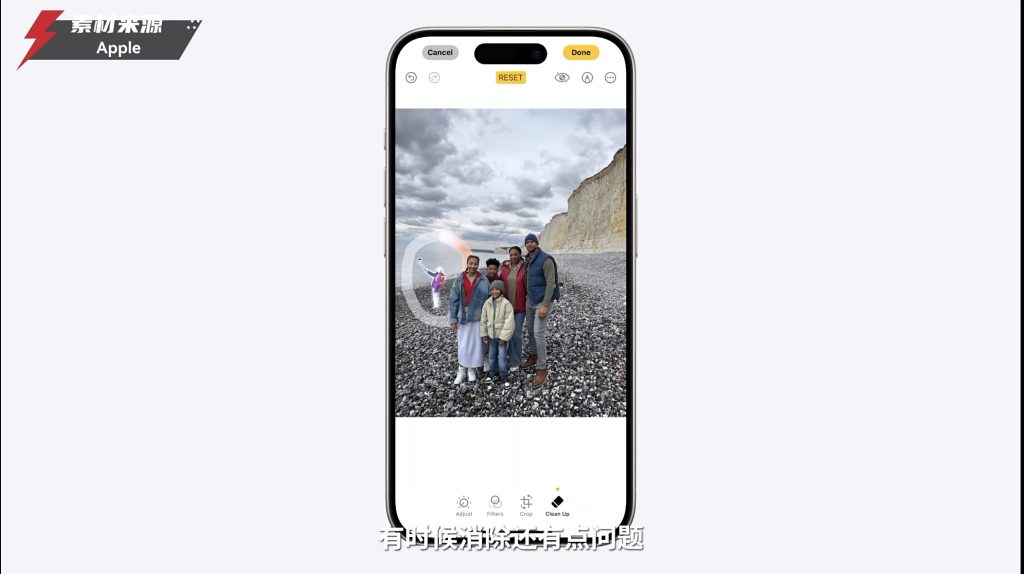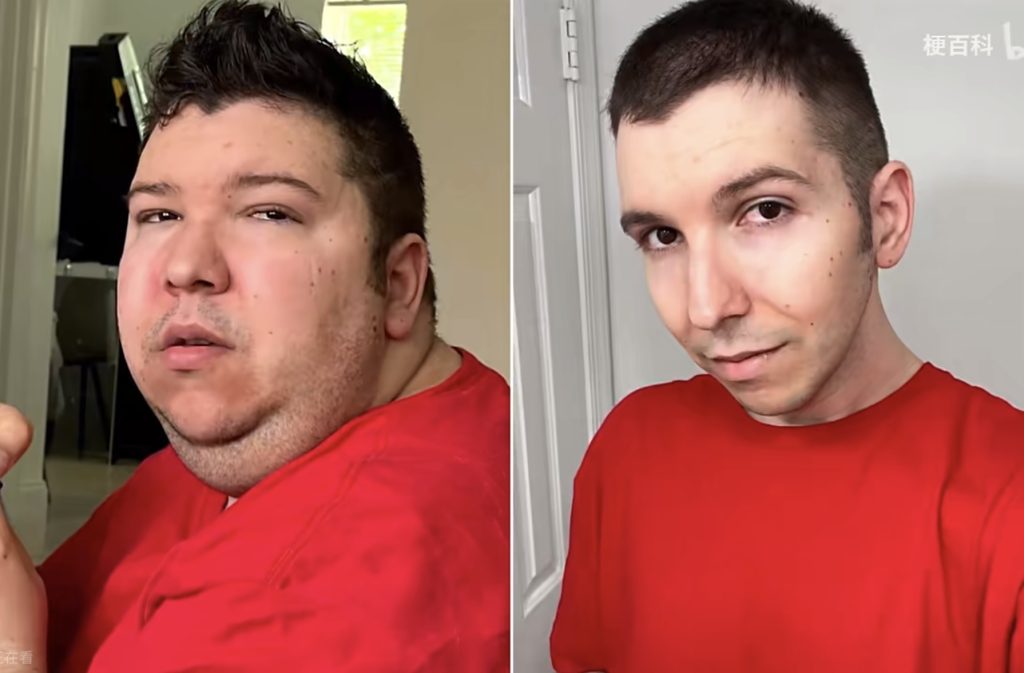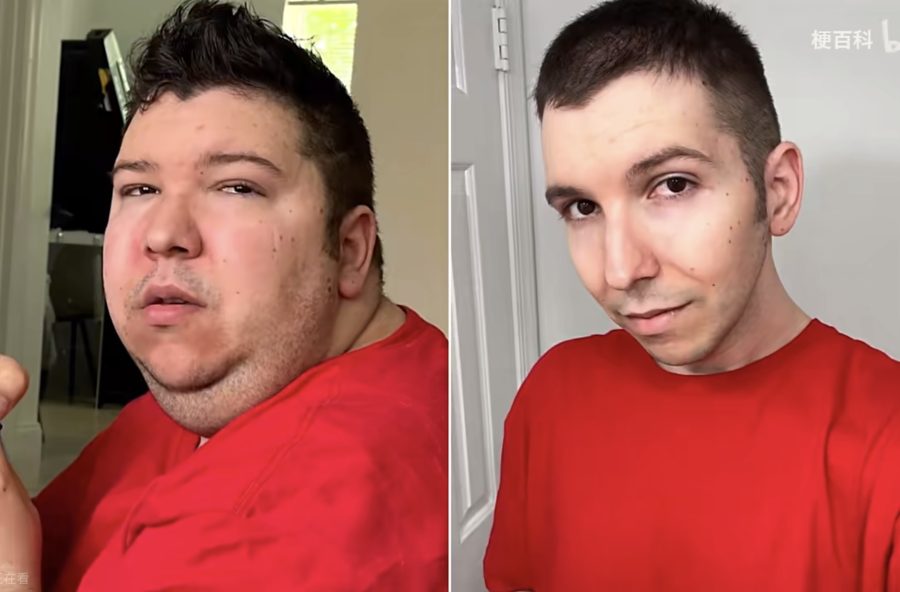At the beginning of this blog post, I want to quote a line I really like from the self-media channel Stromcrew in one of their videos. When discussing AI’s ability to remove people from photos, they said: “In modern society, people leave so many traces of their existence online, but perhaps all it takes is a single command to an AI to erase those traces entirely. Of course, people exist in reality, but when we rely so heavily on the online world to record our lives, what will our existence become if those traces are all erased?”

The internet is developing so rapidly that people today have various ways to share their lives online—photos, audio, video, and even more realistic methods like VR. This also means that, in the eyes of people who don’t know us in real life, our image is almost entirely shaped by the content we post online. This is the digital identity we create for ourselves.
Let’s look at an example: Nikocado Avocado, perhaps the most famous mukbang influencer today. Viewers have witnessed his journey from being a vegan to eating meat, then gaining weight, acting erratically, and eventually losing weight—all because he documented everything in videos posted online.

There’s no doubt that his weight loss was a key moment that propelled him to further fame, but we’ll focus on the entire process of how he gradually gained followers step by step.
In the beginning, he was just an ordinary, quirky vegan, posting mukbang videos online that didn’t particularly stand out.
His first breakthrough came with a shift in identity—he abandoned veganism. In his videos, he voiced various frustrations with veganism and announced he would no longer follow it. His first video of him eating meat then gained unprecedented views.
It may seem like he shed a layer of identity, but in reality, he was constructing a new one. He didn’t just “abandon veganism”; he “became someone who abandoned veganism.” This process marked the first step in actively building his own identity.
In the following videos, viewers witnessed him slowly becoming overweight, comical, and erratic. While his antics made for entertaining content, they also evoked pity, as it seemed to be the downfall of an ordinary person into an online spectacle. Yet no one realized this was the second step in his identity-building journey—discarding his former self, or rather, “becoming someone who has abandoned their former self.”
At this point, he published a video like this.
At that time, no one understood what he meant by the “social experiment” he spoke of or what it represented. Everyone laughed at his attention-seeking behavior, thinking he had gained views but lost his sense of self and dignity.
It wasn’t until two years later that he returned to the public eye with a completely new image, leaving all those who had mocked him speechless. Just as what you can see in the image above.
From that moment on, his digital identity was fully established. He was no longer a “vegan,” nor a “meat lover,” or a “crazy online clown,” but rather a meticulous and strategic “social experimenter.”
Why is this the case? I believe it’s because he executed a perfect plan to build his online identity. People are drawn to novelty and eye-catching content; constant change and the shock of different viewpoints satisfy audiences, even if they’re never truly satisfied. Whether or not Avocado consciously constructed his identity step by step, his flawless final act made everything he had done before appear as a well-crafted setup. Regardless of whether he is an ordinary person in real life or as outrageous as his online persona, his digital identity is now fully established.
For those who don’t know him in real life, this is the Avocado we recognize—his digital identity presented to us. What the truth behind it all is? No one knows. But at the very least, his digital identity has become a significant part of his true self, earning him fame and generating income. In a sense, perhaps his digital identity has even replaced his actual self.
Reference
【没有AI,它有什么?iPhone 16 Pro国行评测!-哔哩哔哩】 https://b23.tv/Y4zBU4g
【【梗百科】爆瘦226斤,骗过全网的鳄梨小哥是怎么回事?-哔哩哔哩】 https://b23.tv/CKSWtdT


Hi Zichao, this was a very intruiging read! You explained things very clearly and I liked the example you used. I did not watch Nikocado Avocado, but I heard about his “I am two steps ahead” speech and the social experiment.
I think it interesting to note that to convince people he lost all the weight and it was not a video from his earlier self, he participated in the current “apple” dance trend. Even then, some people believed it to be AI-generated or deepfake. This shows that the trust in online personas is slowly fading and a small portion of the viewers begin to realise the potential fakeness of everything. Especially due to the rise of AI, faking a digital personality has become extremely easy. Using AI generated images, voices, videos, and more makes it questionable, whether each digital personality we encounter is a real human or not.
I have experienced your point that our image is shaped by what we post online for people we dont know personally. Before starting university, I interacted with accounts of other future university students and could only form an opinion through the small lense they provided me with – posts, stories, and bios. The digital identity is getting increasingly more important, as you have mentioned. Do you believe it will become, or even is more important than our real life identity? Or will take over our lives so much, that it becomes our true self? I have heard of stories where actors act a character so intensely, they start to believe they are actually that character, or at least start behaving like them. I believe that the digital self could – and already has, like your example with Nicocado Avocado – overtake our real self in the future. Not only pertaining to celebrities, but ‘regular’ people too.
Yes, just as you said, perhaps just issuing a command to artificial intelligence can completely erase the traces of our existence, so we should live every day well and live in the present, enjoy the life,right
Hello,
I find your blog post to be insightful especially as I had been following the whole Nikocado Avocado debacle on social media and this post made a lot of sense to me! It was interesting to choose him as your featured example to share your viewpoints on this topic with plenty of strategic opinions and analysis on different reactions from viewers about his online identity. In the beginning of the post, you also mentioned Virtual Reality and Artificial Intelligence and their role in how we construct our identities online.
This post was a great way to showcase your personal opinion!
I really enjoyed this post – it’s fascinating to me how he’s gotten to where he is today. The identity he’s built for himself is quite something, especially since he’s somehow lost all of that weight and kept it a secret. Your opinion is very much relevant, which is interesting to see!
If you wanted something to improve on, I’d maybe add a bit more theory in there. Your opinion and argument on his journey is true, however is there any theory behind the identity he’s built? Why has he done it this way? Do you think behind all of the persona he shows online that he’s struggling to keep up this identity?
In this article, your essay explores the boundary between the Internet and reality and the extent to which digital identities can replace us. You take Nikocado Avocado, whose transition from vegetarian to meat, weight change, behavior change, and weight loss success was documented online, as it gradually builds its digital identity.
I find your blog very interesting , it is definitely true how the internet has changed the way we read think and see people. Avocado’s challenges of his weight loss gave him fame , However having a digital identity does not always represent you as the person you are . To improve on this post as well as your opinions, you can explore how digital identity creates a force impression of someone. Anyone can be someone on the internet. Also you could question more as you kind of did, was he doing this for fame. This is why we should not always be a passive audience and question what we see. Also you could of added a few quotes to backup your augment, On the whole a good post which could be developed.